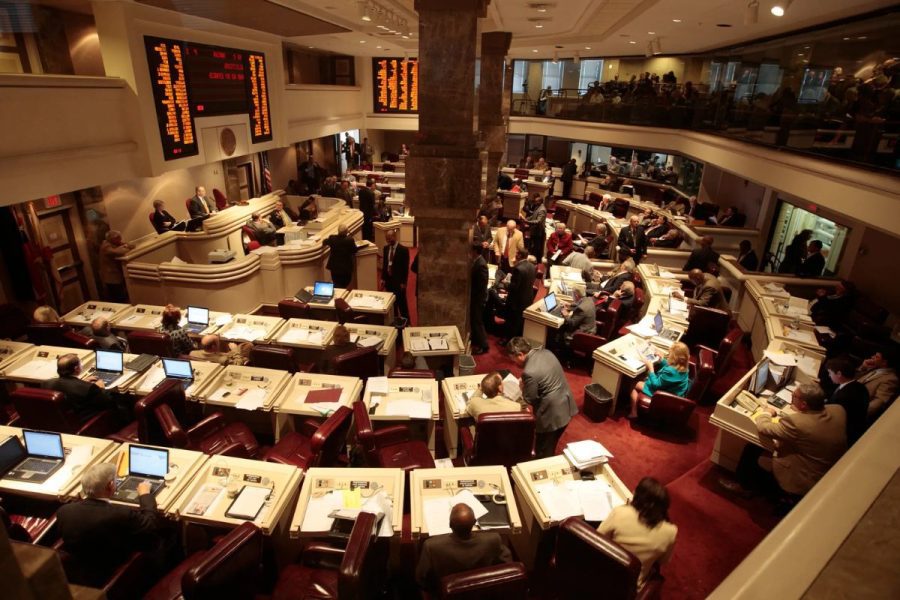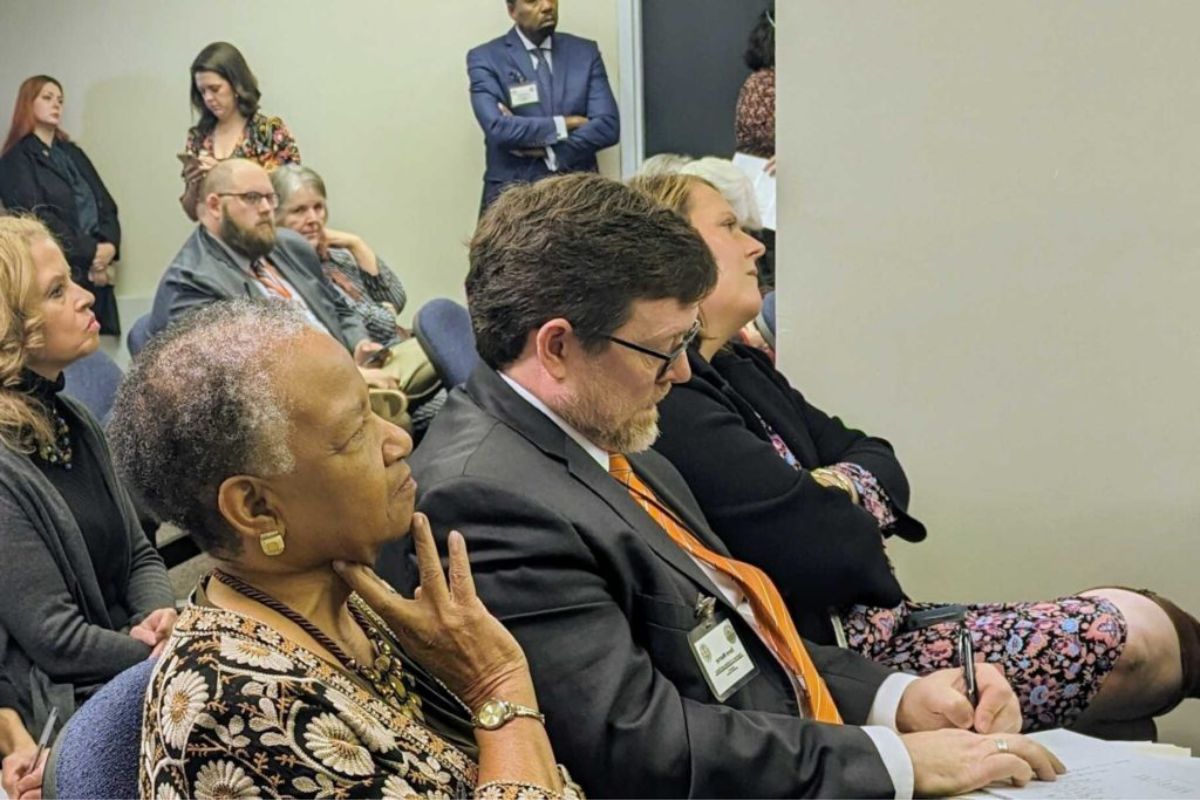Archives Governance Bill Faces Opposition: The proposed Archives Governance Bill, known as SB 77, has sparked intense debate and opposition from various stakeholders. Concerns have been raised about its potential impact on transparency, accessibility, and inclusivity within archival institutions. As public outcry mounts and controversies surrounding LGBTQ+ representation emerge, calls for crucial changes to the bill have grown louder.
From questions about governmental oversight to worries about historical erasure, a myriad of diverse concerns has been brought to the forefront. The clash between proponents and detractors sets the stage for a pivotal moment in the ongoing discourse surrounding archival governance, leaving many to ponder the fate of our collective memory and cultural heritage.
Background and SB 77 Overview
Launching a critical examination into the background of the Archives Governance Bill, SB 77 disrupts the status quo by proposing a significant shift in the appointing authority of the Archives Board. Introduced by Sen. Chris Elliott, the bill seeks to end the self-perpetuating appointments within the board. The proposed change would transfer the authority to appoint members from the board itself to elected officials, including key political figures such as the Pro Tem of the Senate, Speaker of the House, lieutenant governor, and the governor.
This shift in the appointing authority is a bold move that aims to introduce more transparency and accountability into the process of selecting members for the Archives Board. By involving elected officials in the appointment process, SB 77 seeks to break away from the current system’s potential for nepotism or favoritism. This move could potentially lead to a more diverse and representative board that is better equipped to fulfill its responsibilities effectively.
The proposed change has sparked discussions and debates among stakeholders about the implications and potential outcomes of such a significant alteration in the governance structure of the Archives Board.
Public Outcry and LGBTQ+ Controversy
Amidst escalating tensions surrounding LGBTQ+ representation in public forums, the recent public hearing on the Archives Governance Bill exposed deep-rooted controversies within the community. The divide was evident following the grant-funded talk on LGBTQ+ history by Maigen Sullivan at the department, which sparked a heated debate.
Senator Elliott’s strong criticism of the department’s decision to host the program, coupled with attempts to slash $5 million from its budget during the redistricting session, added fuel to the fire. This incident not only highlighted the ongoing struggle for LGBTQ+ visibility and acceptance but also underscored the larger issue of governance and decision-making processes within public institutions.
The clash between those advocating for more inclusive programming and those pushing back against what they perceive as controversial content has brought to the forefront a significant challenge that needs to be addressed promptly. As the discussion intensifies, it is clear that finding common ground amidst such polarizing views will be crucial in shaping the future direction of the Archives Governance Bill.

ALSO READ: Alabama House Gaming Bill Victory Celebrated by Give Alabama”
Opposition and Recommendations
In light of the unanimous opposition voiced during the public hearing on SB 77, critical recommendations have emerged from Archives Director Steve Murray to enhance the proposed Archives Governance Bill. Acknowledging the need for accountability, Murray suggested key modifications. These include incorporating the Speaker of the House and the Senate President Pro Tempore onto the board to ensure a balanced decision-making process. Additionally, Murray proposed subjecting the governor’s appointments to Senate confirmation, aiming to introduce a system of checks and balances within the governance structure.
The vocal opposition during the public hearing, with 13 individuals speaking against the bill and no visible support, underscores the necessity for substantial revisions. Murray’s recommendations address the concerns raised by stakeholders and aim to foster transparency and inclusivity within the governance framework. As the debate surrounding SB 77 intensifies, incorporating these crucial changes could pave the way for a more robust and widely accepted Archives Governance Bill.
Diverse Concerns Raised
The diverse concerns raised by stakeholders such as Carrie Banks and Alyx Kim-Yohn surrounding SB 77 highlight significant apprehensions regarding the proposed Archives Governance Bill’s implications and intentions. Banks, representing the Friend of the Archives, stressed the necessity for consistency with other historical agencies, advocating for a common-sense governmental approach to the matter. On the other hand, Kim-Yohn’s inquiry into the motivations behind the bill raises suspicions that it might be a reactionary response to a program focusing on LGBTQ+ history. These differing perspectives underscore the complexity and potential contentious nature of the proposed legislation.
Deeper Insights:
- Consistency Concerns: Banks’ emphasis on aligning with established historical agency practices reveals a desire for harmonization within the archival sector.
- Governmental Rationality: The call for a ‘common-sense government solution’ suggests a plea for pragmatic and well-thought-out governance frameworks.
- Motivational Scrutiny: Kim-Yohn’s speculation regarding hidden motives behind the bill urges a critical examination of the driving forces behind legislative actions.
News in Brief
The proposed Archives Governance Bill, SB 77, is facing significant opposition, raising concerns about transparency, accessibility, and inclusivity within archival institutions. Senator Chris Elliott’s bill suggests a substantial shift in the appointing authority of the Archives Board, aiming to involve elected officials to enhance transparency and curb potential nepotism. Tensions escalated during a public hearing, particularly regarding LGBTQ+ representation, leading to calls for crucial changes.
Archives Director Steve Murray recommends modifications, including involving the Speaker of the House and Senate President Pro Tempore for balanced decision-making. The vocal opposition during the hearing emphasizes the need for substantial revisions, reflecting 13 individuals against the bill. Diverse concerns, notably from stakeholders like Carrie Banks and Alyx Kim-Yohn, highlight the complexity and potential contentious nature of SB 77. Banks stresses consistency with historical agencies, while Kim-Yohn questions potential hidden motives, urging a critical examination of the bill’s driving forces.

